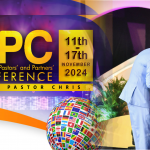
Welcome to another week of the Transformational Leadership Series.
For weeks now, we have discussed “values” from a “secular” perspective. Values are important to understand because they determine whether leadership will be transformational and sustainable or fleeting. Today we will consider values again but from a different perspective—as the precipitators of development. But first let us refresh our memories on the definition and source of values.
DEFINITION
Values are timeless guiding principles that influence behaviour and do not change irrespective of whether circumstances are favourable or not. They are standards that guide our actions, judgments, and attitudes.
SOURCES OF VALUES
It is important to determine the source(s) of our values as well as the actors behind them. The sources of our values may include but are not be limited to:
|
|
|
|
|
|
|
|
|
|
|
|
It is not just these factors that influence our values but the dominant actors behind them such as script writers, movie directors and producers, newspaper editors, record label execs, media house owners etc. If schools have shaped us, it means curricula developers, have shaped us … and so on and so forth.
RELIGION
By far the dominant shaper of values omitted from the list above is religion. The media sphere of influence shapes societal values but the media itself is directed and shaped by the values of its execs and owners. The same goes for other spheres of influence such as the government, science and technology, economics etc. The values of the men and women who drive all spheres are invariably moulded by their religious persuasion—i.e. who they think God is or is not and whether or not they subscribe to His values. The answers to the above questions have shaped modern human history. Find out more in succeeding paragraphs.
Historically speaking, a Christian worldview and the values it espouses have produced transformational leaders who have changed the course of history for good. The converse is also true. Let us consider the work of three social scientists.
The first is Max Weber who was a German sociologist, philosopher, jurist, and political economist. He authored The Protestant Ethic and the Spirit of Capitalism. Weber put forward the thesis that Calvinist ethic and ideas influenced the development of capitalism. Weber noted the post-Reformation shift of Europe’s economic centre away from Catholic countries such as France, Spain and Italy, and toward Protestant countries such as the Netherlands, England, Scotland and Germany. Weber also noted that societies which had more Protestants were those with a more highly developed capitalist economy. Similarly, in societies with different religions, most successful business leaders were Protestant. Weber thus argued that Catholicism impeded the development of the capitalist economy in the West, as did other religions such as Confucianism and Buddhism elsewhere in the world.
The phrase “work ethic” used in modern commentary is a derivative of the “Protestant ethic” used by Weber. It was adopted when the idea of the protestant ethic was generalised to apply to non-Christians and thus lost its religious connotations.
The second academic is Niall Campbell Ferguson who is a senior research fellow at Jesus College – Oxford, a visiting professor at the New College of the Humanities, senior fellow at the Hoover Institution – Stanford University, former Laurence Tisch Professor of History at Harvard University, contributing editor for Bloomberg Television and columnist for Newsweek magazine.
He authored the book, Civilization: The West and the Rest. His principal research question was, “Just why, beginning around 1500, did a few small polities on the western end of the Eurasian landmass come to dominate the rest of the world, including the more populous and in many ways more sophisticated societies of Eastern Eurasia?”. His subsidiary question was, “if we can come up with a good explanation for the West’s past ascendancy, can we then offer a prognosis for its future? Is this really the end of the West’s world and the advent of a new Eastern epoch? Put differently, are we witnessing the waning of an age when the greater part of humanity was more or less subordinated to the civilization that arose in Western Europe?”
In Civilization: The West and the Rest, Ferguson recounts an incident also recounted by David Aikman, former Time Magazine Beijing Bureau Chief and Professor of history and writer-in-residence at Patrick Henry College. David Aikman, interviewed the retiring head of state in Communist China in 2002, Jiang Zemin, and asked what he wished for in regard to China’s future. His response shocked Aikman and much of the world when he replied: “I would like for my country to become a Christian nation”. When asked “Why,” Zemin’s response was an amazing revelation. He explained how a panel of Chinese scholars had spent twenty (20) years studying why China continually lagged behind the West in science, industry, and culture. After considering every possible explanation, they concluded that it was the religious heritage of the West that had allowed it to reach such heights. The statement of these Chinese scholars was as follows:
“We were asked to look into what accounted for the … pre-eminence of the West all over the world … At first, we thought it was because you had more powerful guns than we had. Then we thought it was because you had the best political system. Next, we focused on your economic system. But in the past twenty years, we have realized that the heart of your culture is your religion: Christianity. That is why the West has been so powerful. The Christian moral foundation of social and cultural life was what made possible the emergence of capitalism and then the successful transition to democratic politics. We don’t have any doubt about this…”
Sources:
Ferguson, N. (2011). Civilization: The west and the rest. London: Allen Lane. p. 685-686
Aikman, D. “A Report on Christianity in China: A Conversation With David Aikman.” Speech at the Ethics and Public Policy Center in Washington, September 26, 2002.)
Think about it. It took the Chinese academy of sciences 20 yeas to realize what scripture had said thousands of years in advance. If societies follow the value system of God, they will prosper. But if they follow that of the wicked, they will deteriorate. True transformational leadership that spurs positive inclusive development is predicated and established solely on the values of God espoused in scripture. Any other ground is sinking sand.







